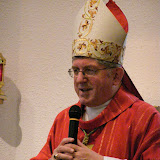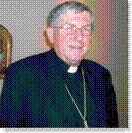Message from Fr. Jose Koluthara, CMI
| Lord Jesus, |
My Dear Brothers and Sisters,
Today’s liturgy invites our attention to two families: Abraham and Sarah, Joseph and Mary. Their adventurous acts in forging their way and in forming themselves as God’s people are reminiscent of the struggles faced by families today. In an article titled “Unintended Consequences”, Fr. James Smith illustrates the impact of social pressures on American Life. ‘Unintended consequences’ is an expression used by social scientists to account for side effects of larger issues. On this feast of Holy Family it is worth reflecting on the “unintended consequences” of modern life on Canadian families.
Years ago we thought that technology and work-saving devices would give us more free time. But, in fact, now we work more hours than people did twenty five years ago. Lack of time is the worst problem of the families at present.
Both parents have to work now, whereas one parent’s work was enough in the past. Why? Needs increased. Today parents think of themselves becoming successful only if they house their children in certain neighbourhoods, clothe them in designer clothes, feed them junk food and teach them to take care of themselves.
Now the parents spend more time at work than with the children for the good of the children. If they sincerely believe so, are they not considering themselves as providers rather than companions? Does it not mean that parents think children prefer presents from them rather than their personal presence? And does it not turn their children into little more than small consumers?
We may not be able to control outside forces, but we can remain in charge of our inner lives. We can decide that people are more important than things. We can decide that families are worth more than careers. We can decide that we have values worth handing on to our children; and they would be better people for having them. We can decide that our children would benefit by our presence. We can decide that our family should be holy.









